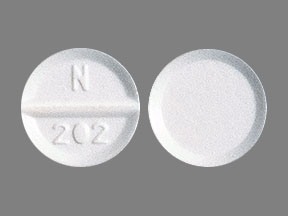
Digox Coupons & Savings Card – Discount Prices from $28.16
Brand for: Digoxin
Digoxin is a medication primarily used to manage heart failure and certain irregular heartbeats, such as chronic atrial fibrillation. By helping the heart to function more effectively, Digoxin can enhance your ability to walk and exercise, as well as bolster heart strength. As part of the cardiac glycosides class, it operates by influencing sodium and potassium levels within heart cells, which decreases heart strain and supports a consistent, steady heartbeat.
Our Digox coupons are free to use. You can print the coupon, email it to yourself, or receive the Digox coupon via text message. To get your free discount, show the pharmacist your Digox savings card which has the discounted coupon price. Use our filters below to edit the prescription box to match your needs. The Digox prices will update based on your prescription needs. Above our Digox coupons, you can change the location to see pharmacy prices in other areas. Our prescription discount card will update online with the specific pharmacy costs associated with your edits. Be sure to text, email, or print the Digox savings card code that you need after editing the prescription box and location field. Show the discount card to your pharmacist before paying.
My prescription
Edit
250MCG, Digoxin (90 Tablets)
Select pharmacy

CVS
$31.56
COUPON PRICE
Albertsons
$28.16
COUPON PRICE
Walgreens
$29.52
COUPON PRICEDigox savings card
Show this card to your pharmacist
Albertsons
$28.16
BIN
ID
PCN
GRP
019876
LHA60FC602
CHIPPO
LHX
Powered by
Digoxin is a medication primarily used to manage heart failure and certain irregular heartbeats, such as chronic atrial fibrillation. By helping the heart to function more effectively, Digoxin can enhance your ability to walk and exercise, as well as bolster heart strength. As part of the cardiac glycosides class, it operates by influencing sodium and potassium levels within heart cells, which decreases heart strain and supports a consistent, steady heartbeat.
Our Digox coupons are free to use. You can print the coupon, email it to yourself, or receive the Digox coupon via text message. To get your free discount, show the pharmacist your Digox savings card which has the discounted coupon price. Use our filters below to edit the prescription box to match your needs. The Digox prices will update based on your prescription needs. Above our Digox coupons, you can change the location to see pharmacy prices in other areas. Our prescription discount card will update online with the specific pharmacy costs associated with your edits. Be sure to text, email, or print the Digox savings card code that you need after editing the prescription box and location field. Show the discount card to your pharmacist before paying.
More prescriptions for heart failure
coupons from$9.79Save 51%
coupons from$114.02Save 85%
coupons from$9.79Save 72%
coupons from$14.97Save 74%
coupons from$7.02Save 91%
coupons from$22.77Save 89%
coupons from$625.22Save 16%
coupons from$8.19Save 78%
More prescriptions for heart failure
Furosemide Save 51%coupons from $9.79
Carospir Save 85%coupons from $114.02
Zestril Save 72%coupons from $9.79
Trandolapril Save 74%coupons from $14.97
Quinapril Save 91%coupons from $7.02
Chlorthalidone Save 89%coupons from $22.77
Inpefa Save 16%coupons from $625.22
Telmisartan Save 78%coupons from $8.19
Digoxin dosage forms
Use our Digoxin 125MCG coupon with prices from $9.11 for 1 Tablet. You can also use our Digoxin 125MCG coupon with prices from $9.68 for 6 Tablets. We have a Digoxin 125MCG coupon with prices from $10.13 for 10 Tablets. You can use our Digoxin 125MCG coupon with prices from $10.70 for 15 Tablets.
Dosage Quantity Price from Per unit 125MCG 1 Tablet $9.11 $9.11 125MCG 6 Tablets $9.68 $1.61 125MCG 10 Tablets $10.13 $1.01 125MCG 15 Tablets $10.70 $0.71 125MCG 30 Tablets $12.39 $0.41 125MCG 50 Tablets $20.62 $0.41 125MCG 60 Tablets $21.74 $0.36 125MCG 90 Tablets $25.12 $0.28 125MCG 100 Tablets $26.24 $0.26 125MCG 1000 Tablets $84.70 $0.09
| Dosage | Quantity | Price from | Per unit |
|---|---|---|---|
| 125MCG | 1 Tablet | $9.11 | $9.11 |
| 125MCG | 6 Tablets | $9.68 | $1.61 |
| 125MCG | 10 Tablets | $10.13 | $1.01 |
| 125MCG | 15 Tablets | $10.70 | $0.71 |
| 125MCG | 30 Tablets | $12.39 | $0.41 |
| 125MCG | 50 Tablets | $20.62 | $0.41 |
| 125MCG | 60 Tablets | $21.74 | $0.36 |
| 125MCG | 90 Tablets | $25.12 | $0.28 |
| 125MCG | 100 Tablets | $26.24 | $0.26 |
| 125MCG | 1000 Tablets | $84.70 | $0.09 |
| 250MCG | 90 Tablets | $28.16 | $0.31 |
| 250MCG | 1 Tablet | $9.13 | $9.13 |
| 250MCG | 30 Tablets | $12.84 | $0.43 |
| 250MCG | 60 Tablets | $16.68 | $0.28 |
| 250MCG | 100 Tablets | $29.62 | $0.30 |
| 250MCG | 1000 Tablets | $84.70 | $0.09 |
Digox FAQs
Using the SaveHealth discount card, what is the price of Digox without insurance?
Using the SaveHealth discount card, the price of Digox without insurance is $28.16.
What is the price of Digox at CVS?
The price of Digox at CVS is $31.56.
What is the price of Digox at Walgreens?
The price of Digox at Walgreens is $29.52.
